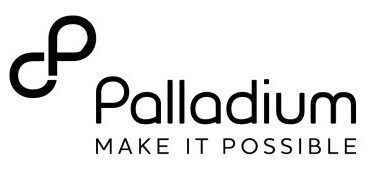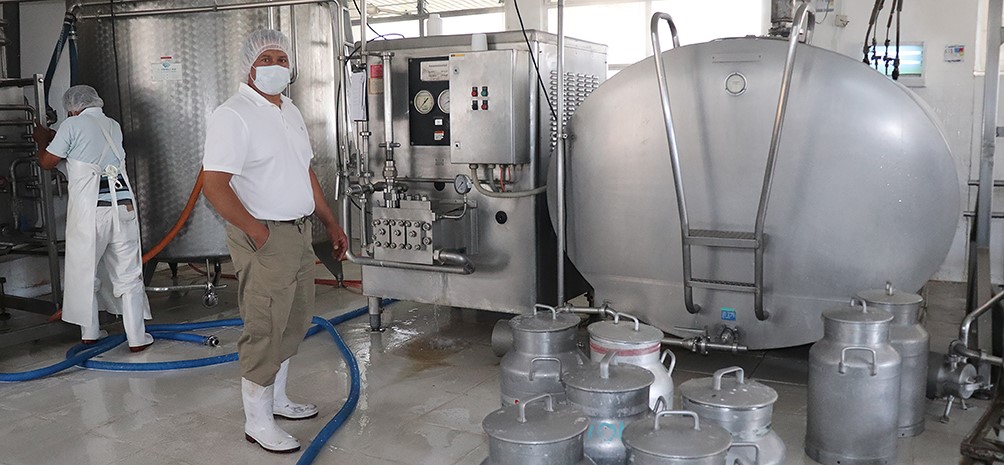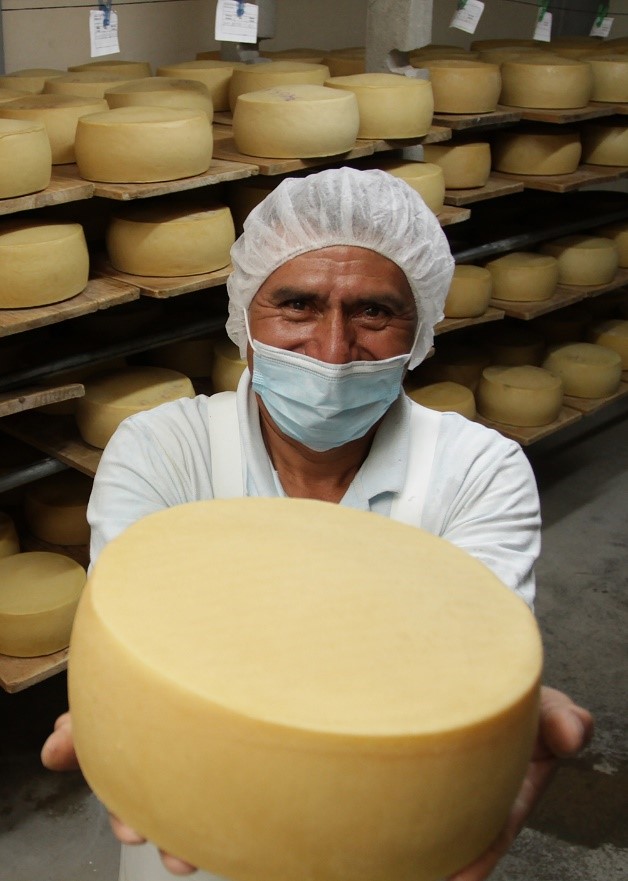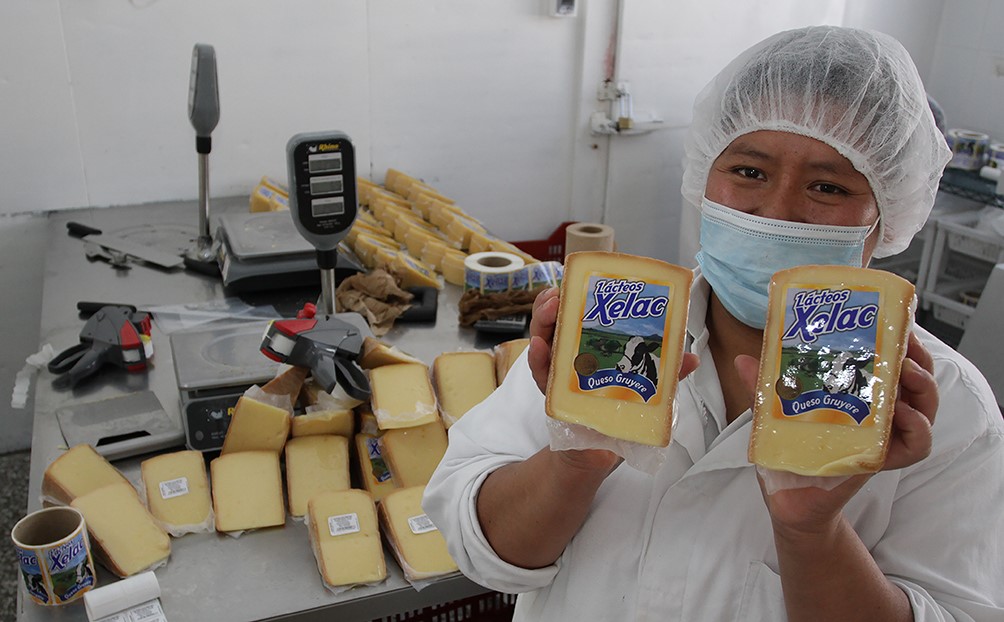
Member Spotlight: A Dairy Co-op Expands Business with Investment in Machinery in Guatemala
By Massiel Alvarado, Palladium | Sept. 20, 2019

Xelac Dairy Cooperative President Willy Avila stands before the pasteurizing machinery, which was recently repaired. The repairs saved the cooperative and its 65 family members 200 liters of milk per day. Photo: Massiel Alvarado/USAID
The cooperative of 65 families, which has existed for more than 40 years in San Cristobal Totonicapán in the western highlands, has recently expanded its capacity to process milk into butter, cheese, and yoghurt by 15%, and expanded sales by 8% this year. The expansion of the business is due to technical assistance given by the USAID Creating Economic Opportunities Project: a review of accounting procedures to strengthen the ability to apply for, and win, a $125,000 loan to repair machinery; rigorous analysis of production costs for more than 60 products; and support to market their cheeses and yoghurt to new clients, like Gran Gallo supermarket.
“A year ago, we were in a depression,” said Cooperative President Willy Avila. “Members could not increase sales to the cooperative because we didn’t have the capacity to process milk or commercialize the end products.”
In a year, the Creating Economic Opportunities Project has helped bring positive change by challenging the dairy cooperative to improve its administration. “Today, we process all the milk members can produce on their farms,” said Avila. “Our sales are increasing. We have a cost structure on which we can make decisions in terms of prices, and this gives us confidence to negotiate new sales routes.”
The Xelac Dairy Cooperative lies in a green valley at kilometer 187 on the road to Quetzaltenango, with green hills rising to the west, and the towering volcano Santa Maria anchoring the horizon to the south. The 65 member-families live on small farms scattered throughout the departments of Quetzaltenango, San Marcos, and Totonicapán to the north and west.
The co-op produces more than 60 products: fresh milk — some of which goes to local school lunch programs — cream and butter; soft cheeses that are prized in Guatemala to eat with handmade corn tortillas; and hard cheeses like Parmesan, Cheddar, and the local specialty — Tilsit, a Swiss cheese.
“Support from USAID, given from about May 2018, has been the cornerstone of the changes we are beginning to see,” said General Manager Carlos Talé. “The factory was maintaining itself in balance from sales but lacked the kinds of plans which could inject optimism for growing.”

Production Manager Francisco Chan demonstrates a round of cheese that the Xelac Dairy produces. Chan has worked for more than 20 years at the factory, which is in the western highlands of Guatemala. Photo: G. Alvarado/USAID
Assessing Operations
A technical analysis of current operations and prospects determined that the cooperative — with a second generation of members wishing to expand production — could in fact grow by 55%, from 4,500 liters per day to 7,000. Solid financial information about annual production and sales provided the basis for which a $125,000 loan was awarded; $26,000 was invested in repairing aging machinery, which immediately recovered 200 liters of milk per day that was being lost.
A major review of production costs showed that eight products — including shredded Parmesan, heavy cream, and Camembert cheese — make a nice profit, taking into account prices adjusted to include administrative and sales costs. But seven — including semi-hard cheese, Ricotta cheese and skimmed milk — actually lose a little bit of money when these additional costs are taken into account.
A visit to the head offices of Gran Gallo supermarket in Coatepeque — a chain with 26 stores —has produced $10,500 in sales in five months.
“This was a good experience for us in terms of expansion to other, warmer regions, said Tale. “Our hard cheeses and the yoghurt are selling. This is good, because yoghurt sales are lower in the western highlands where there is more competition.”
The results of project support for the past year are clear: production is up 16% from 4,500 liters per day to 5,200 liters; sales in May are up 14%; and the dairy has been able to hire five new employees.
“Workers are motivated because they see employment stability in the physical changes,” said Avila. “Producers are hopeful now. We have removed their doubt that we would be able to process their milk production.”
It is this kind of tailored, targeted, and integrated support for businesses in Guatemala’s western highlands region that is building business confidence to create economic opportunities for the region.
Palladium implements the Creating Economic Opportunities Project.

Maria Sapon is one of 44 employees at the Xelac Dairy. She works in the cheese-packing room where dozens of large cheeses are cut into pieces, packaged, and weighed to go to waiting supermarkets. Photo: G. Alvarado/USAID